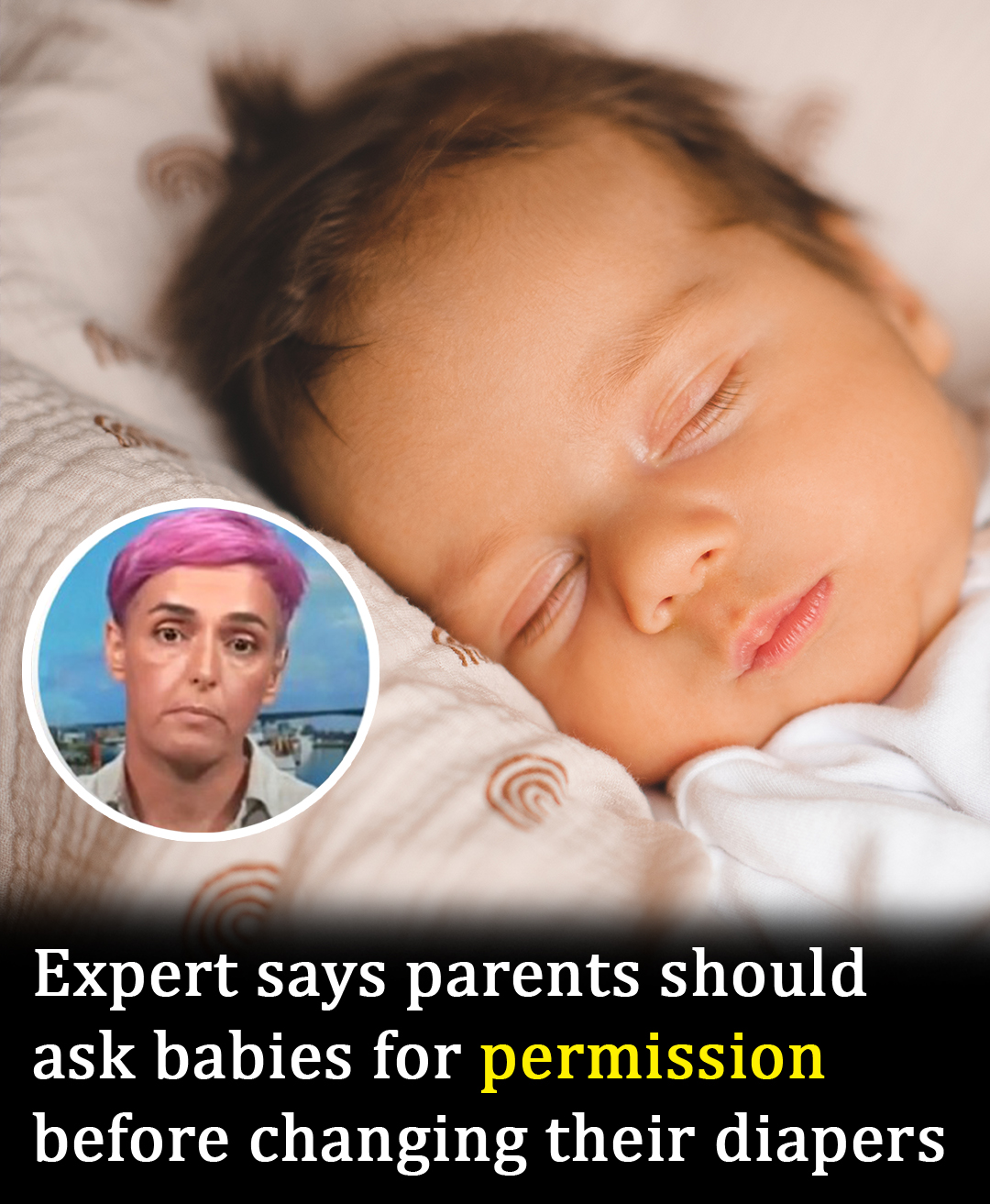An Australian expert’s suggestion that parents ask their babies for consent before changing their diapers has sparked intense debate, with some questioning the practicality of such advice. Deanne Carson, a sexuality educator, argues that introducing the concept of consent to infants from birth helps promote a culture of respect for the child’s body and autonomy.
The Concept of Consent from an Early Age
In a world where parenting techniques are constantly evolving, the issue of consent is gaining attention in areas we wouldn’t typically expect, such as diaper changes. Carson proposes that parents should not only talk to their babies about what they are doing—like saying “I’m going to change your diaper now, is that okay?”—but also watch for non-verbal cues, such as body language or eye contact, to gauge the baby’s reaction. This, she argues, is the foundation of teaching respect for personal boundaries from an early age.
Carson, who has years of experience as a sexuality educator, believes that even though a baby cannot verbally express consent, their body language is a powerful indicator of their comfort level. The goal is not to wait for a verbal “yes” but to establish a basic understanding of consent and communication early in life.
“Of course, a baby won’t say, ‘Yes, mom, that’s great, go ahead and change my diaper,’ but if you leave space and wait for eye contact or body language, you’re showing them that their response matters,” Carson explains in an interview with Australia’s ABC network.
 Mother changing her baby’s diaper / Credit: Shutterstock
Mother changing her baby’s diaper / Credit: Shutterstock
Experts Weigh In on the Issue
While the concept of teaching consent is supported by many pediatricians and child development experts who stress the importance of observing and responding to a baby’s non-verbal cues, some critics argue that it is impractical and unnecessary for infants who are far too young to understand the concept of consent.
One of the most vocal critics, parenting expert John Rosemond, dismissed Carson’s suggestion, calling it “the most bizarre idea of all time.” He argues that asking for a baby’s consent to change a diaper is an overcomplication of basic child-rearing, saying that it could create confusion and dysfunction within families.
On the other hand, some supporters of Carson’s views suggest that her intentions were not to overstep the boundaries of common sense but to start a conversation about respecting children’s autonomy. They argue that while babies can’t communicate verbally, they do react to the actions around them and that respecting these reactions can foster trust between parent and child.
The Reaction on Social Media
Carson’s comments ignited a firestorm on social media. Many people mocked the idea, comparing it to asking pets for permission to change their litter trays. One person jokingly asked if parents should also seek consent from their cats before changing their litter. Others, however, defended Carson, suggesting that her aim was to create a dialogue about consent, even if her example was extreme.
While some may find the concept of asking for consent before changing diapers impractical, the debate has raised awareness about how parents interact with their babies and the importance of communication, even at a very young age. As one supporter of Carson noted, “Babies and toddlers learn to communicate well before they can speak. Even if the idea seems a little extreme, it’s important to show respect for their autonomy.”
”
Creating a Climate of Respect
At the heart of this debate is a question of parenting philosophy. Should parents emphasize explicit consent from the moment a baby is born, or is it enough to be mindful of their needs and respond appropriately without formal consent? For many, the latter approach may feel more natural, but there’s no denying that fostering an atmosphere of communication and respect can only benefit a child’s development.
Incorporating mindful, respectful practices into everyday parenting may seem small, but it could have lasting impacts on a child’s sense of self and autonomy. Whether it’s through asking for consent, making eye contact, or simply acknowledging a baby’s needs, the goal is to create a supportive environment where children feel safe and valued.
Parental Approaches to Consent and Respect
For parents who want to adopt Carson’s approach, the key is understanding that consent is more than just a word—it’s about creating an ongoing dialogue that builds trust and respect. This practice might start with simple actions like diaper changes, but over time, it could extend to teaching children about boundaries, personal space, and the importance of listening to their own bodies.
However, for other parents, the idea of asking for consent before changing a diaper may not align with their parenting style, and that’s okay. Parenting is deeply personal, and each family has their own approach to raising their children.
The Bottom Line
In the end, the question of whether to ask for consent before changing a diaper might not have a one-size-fits-all answer. Some parents may embrace the idea of fostering a culture of consent, while others may prefer to take a more practical approach. Regardless of the method, the most important thing is to ensure that children grow up in an environment where their feelings, boundaries, and voices are respected.
For more insights on sensitive topics like consent and child development, check out these articles:



